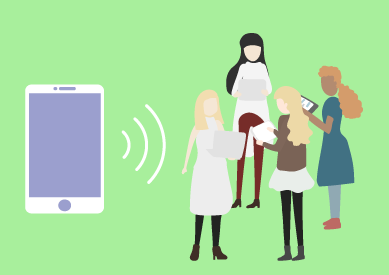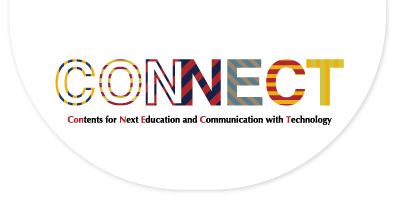Things Your Students Should Know

Before your course starts, make sure that your students are informed of course requirements and policies
Regarding the spread of COVID-19, experts say that the risk of coronavirus infection increases in certain environments. Spread mainly occurs in places that meet the following three specific conditions simultaneously, namely, (1) closed spaces with poor ventilation, (2) crowds of people, and (3) close-contact conversations. Unfortunately, the ordinary classroom is a space where these three conditions are most likely to be met simultaneously.
Efforts have been made to avoid teaching in these highly infectious environments by limiting the number of students per classroom and introducing online learning. Whatever method is used, instructors should always consider what is best for their students and promptly provide appropriate instructions to ensure safe learning environments.
Inform Students Before the Course Starts
Using tools such as KULASIS or PandA(LMS), inform your students of the following.
- Course-related information
- The date of the first class meeting
- Class format: in-person/remote/mix of both
- How students are divided when forming in-person and remote student groups
- Changes made to the syllabus
- Methods of attending class (Zoom, PandA, etc.) and required procedures
- How to check attendance
- Assignments and how to submit them
- How to ask questions about course topics
- Contact information (instructor/TA, etc.)
- Necessary actions for preventing viral infections
- Equipment and settings that students should prepare (e.g., a PC for attending remote classes, telecommunication environment, ECS-ID activation, etc.)
- Information for learning via Zoom (En:Google Translation)
- Notes on the distribution and sharing of class videos and materials (i.e., the importance of copyright protection)
Example of how to notify students
The following is an example of notice used when a course starts.
Example: Medium-sized (~30 students)/ Seminar/ Use of Zoom
This course will be held via Zoom (a web conferencing system). All instructors join the course using Zoom. Presenters give presentations using their own PC and share their screens. Participants interact with each other on Zoom and discuss using the forum function of PandA.
A Sample Notice (Word file created on April 17, 2020)
This notice contains the following information.
- Course Outline
- Changes made to the syllabus
- Class format
- Zoom for Class Sessions
- For learning via Zoom (information for students, En:Google Translation)
- Using Zoom for the first time
- Attending class via Zoom
- Points to note when handling Zoom URLs
- How a Session Proceeds
- Create a topic in "Forum" on PandA
- Upload materials to "Resources" on PandA
- Have a Q & A session in "Forum" on PandA after class
- Zoom Settings and Functions Used
- Displayed name and video/audio settings
- How to ask questions
- Responding to questions
- About TAs
Importance of Copyright Protection
Refer to the following examples to remind students of the copyrights of videos, papers, and other works uploaded to LMS as teaching materials.
"Respecting Copyrights on Lecture Materials and Audio/Video Recordings in Zoom" (Word file; revision released on April 16, 2020)
Same as above (LaTeX file, April 16, 2020 edition/ in Japanese)
- Teaching material containing research works created by the instructors
- Previously published journal articles written by the instructors (not available online)
- Online articles published on the internet
- Videos made available to the general public on YouTube
- Papers published on an open-access basis
Points to Note for Students Attending Online Class on Campus
As courses return to normal gradually, students may have mixed in-person and online classes on their schedules, even on the same date. There are some points for students to note when attending class online on campus, which are summarized in the following document. Please announce these points to students before or after class and on your LMS course site.
Notes for On-Campus Online Students (Sep 28, 2020, created by the Institute for Information Management and Communication/ in Japanese)
- When attending an online class from a study room
- When attending an in-person class that is also delivered online Other points to note common to 1 and 2
Since the pandemic started, each department has worked on the improvement of classrooms and learning environments to allow students to attend online classes on campus. Additionally, ICT Commons (a common PC use area) in the south building of the Academic Center for Computing and Media Studies on the Yoshida-South Campus is open on a trial basis to all Kyoto University students (see the linked page below). Along with the above notes for students, please make sure that students know the locations available for attending online classes on campus.
Notification: ICT Commons (a common PC use area) in the south building of the Academic Center for Computing and Media Studies is open on a trial basis (Sep 1, 2021, Institute for Information Management and Communication/ in Japanese).
Assessment
The following page describes what you should tell your students about assessment (internal link).
Things that students should know about assessment ("How Assessment is Possible in Online Learning")
- Assessment methods and criteria
- Communicate the importance of academic integrity
- References
Writing Reports
The following is a handbook that provides information on how to write reports. The handbook serves as a guide not only for first-year students but also for second-year students and above.
"How to Write Reports: Key Points in Academic Writing" (created by Institute for Liberal Arts and Sciences, 2016/ in Japanese)
- Intellectual production process
- Retrieval and use of literature/information
- From organizing information to writing a report
- Writing a report is not an end in itself
- Review your writing process
- Continue your efforts

